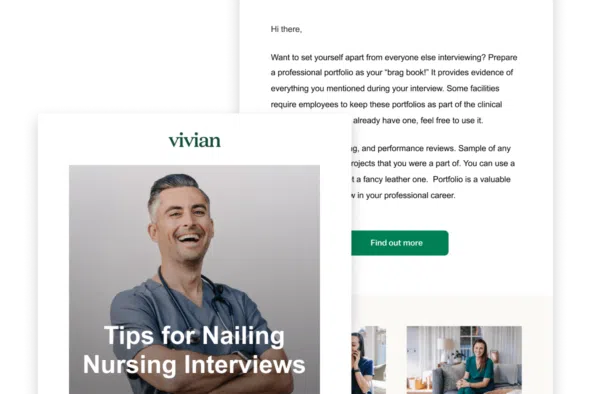In today’s rapidly evolving healthcare industry, there’s an increasing need for innovative strategies to meet the growing demand for high-quality medical care. In response, healthcare systems and professionals are transitioning how they address patient care, with personalized healthcare emerging as a viable solution. However, this approach isn’t just a passing trend impacting healthcare professionals (HCPs) in the short term. It’s a crucial shift towards more individualized care, ensuring that treatments are uniquely tailored to each patient’s genetic, environmental and lifestyle factors.
Below, we dive into personalized healthcare to learn how it can benefit your practice. We explore the technological advances driving personalized healthcare innovations and the benefits and challenges involved. Additionally, we explain some of the impacts on patient care and outcomes and what the future holds.
Defining Personalized Healthcare
Personalized healthcare represents a significant leap from traditional one-size-fits-all solutions, where medical care is no longer generalized but specifically adapted to individual needs. Moving away from a universal approach, where everyone receives similar care and treatment regardless of their unique circumstances, not only enhances patient outcomes but also streamlines the efforts of healthcare professionals.
With various advancements and research in medical technology, the awareness and understanding of personalized healthcare have grown tremendously. Personalized healthcare supports individualized patient care and tailors preventative screenings and treatment options. Essentially, it accounts for a person’s genetic makeup, physical characteristics, body composition, medical and family history and other factors that can impact their healthcare.
How Technological Advances Promote Personalized Healthcare
Advances in technology play a pivotal role, enabling today’s healthcare to be customized at levels previously unimaged. In fact, personalized healthcare has become a reality due to revolutionary advances in how healthcare services are delivered today. Some of these innovative technological advancements include the following:
- Artificial Intelligence (AI): AI uses patterns and algorithms to predict patient needs and outcomes. It can also generate personalized health content, like reminders, health screenings and educational materials. A research study published in January 2021 in Clinical and Translational Science found that AI technologies empowered clinicians in their decision-making process and treatment options.
- Communication: Advances in communication through electronic health records (EHR) or charting systems have provided patients with new avenues to speak with their healthcare team members. Patients can message their healthcare provider directly, view test results and schedule appointments.
- EHR Advancements: Healthcare professionals can send and view vital patient information between healthcare facilities and pharmacies with patient consent at the click of a button. This development is invaluable during medical emergencies or when patients transfer between medical facilities.
- Genetics: Although not an entirely new concept, genetics has become more significant in healthcare. Genetics involves the process of understanding how a patient’s genes, gene DNA sequencing and inheritance can impact patient care. Some examples are how genetics can predict the risk of developing certain medical conditions or how a person’s body might process medications differently than others.
- Genomics: Genomics involves mapping a person’s complete genetic makeup and genes. A study published in the September 2021 World Journal of Methodology discussed the importance of genomics in disease prevention, early detection and targeted treatment, spurring the rapid advances in genomic technologies.
- Smart Wearable Devices: Portable medical devices, like heart rate monitors and implanted sensors, can track and report patient information to the healthcare team without leaving home or scheduling an appointment. One study in the International Journal of Cardiology in December 2018 found that wearable cardioverter-defibrillators protected patients from sudden cardiac arrest while awaiting an implantable cardioverter-defibrillator. This study is just one example illustrating how HCPs can use wearable devices as an interim treatment or for continued monitoring and safety.
- Telemedicine: Patients can schedule a video visit or message their healthcare provider through an e-visit without requiring an in-person consultation. A research study in the February 2021 Journal of Personalized Medicine found that telemedicine helped healthcare providers get to know their patients on a more personal level, thus further fostering personalized healthcare.
Personalized Healthcare’s Impact on HCPs
The first impact personalized healthcare has on HCPs is forcing them to understand that providing care is a multifaceted approach and no longer universal for all patients. The entire healthcare team must assess each patient’s unique circumstances, needs and body genetics while offering care and treatment.
Additionally, to better adapt to healthcare trends, like new EHRs, wearable devices and telemedicine, HCPs need more training. For example, if a patient is using a new wearable device, healthcare team members must know how to work the device, provide patient education about the device and understand troubleshooting techniques. Healthcare professionals must be or become more tech-savvy, quickly adapt to emerging technologies and understand the available resources when troubleshooting.
Since many technologies developed to enhance personalized healthcare require support, a valuable impact on HCPs is the likely creation of new allied health jobs and nurse opportunities. For instance, a telemedicine provider may need a telemedicine nurse whose sole responsibilities are triaging patients, collecting a thorough patient history and informing the healthcare provider that the patient is ready for their virtual appointment. The availability of telemedicine should also increase the number of physician assistant and nurse practitioner jobs, as these advanced providers can also provide telehealth services.
Alternatively, personalized healthcare can also impact HCPs by posing potential challenges. Healthcare professionals must be diligent about protecting patient information and privacy due to the increasing number of online platforms, EHRs and wearable devices that are subject to security breaches. Additional ethical considerations include maintaining patient confidentiality, ensuring patient autonomy and avoiding stigmatization related to viewing patient data.
Personalized Healthcare’s Impact on Patients
The primary impact of personalized healthcare on patients is the significant potential to improve health outcomes through treatment plans tailored toward the individual. Using AI data and genomics, the healthcare provider could identify how a patient’s body processes medications differently than others instead of treating everyone with the same medication or treatment plan. For example, a person taking thyroid medication may need a specific kind or brand of thyroid replacement hormone due to how their body processes the drug. By dialing in the correct prescription, the patient benefits from improved outcomes and experiences since their body receives the ideal amount or type of medication they need.
Personalized healthcare also empowers patients with more information and available resources. For example, a person more prone to developing high cholesterol due to genetics may seek additional information and talk to their healthcare provider about early screening and prevention strategies. The increasing availability of smartwatches, monitors, health apps and similar technology also allows patients to better understand and manage their health, thus increasing patient autonomy and engagement.
Pros, Cons and Limitations of Personalized Healthcare
Personalized healthcare presents numerous advantages for HCPs, patients and the healthcare industry that significantly enhance patient care and the efficacy of treatments. This targeted approach not only promises improved outcomes but also signals a new era of efficiency and patient empowerment. Some of the top benefits include:
- Decreasing overall healthcare costs
- Reducing unnecessary inpatient and outpatient visits
- Increasing access to medical services and treatment options
- Improving disease detection and prediction
- Customizing drug therapies to prescribe more effective medications and reduce adverse reactions
- Utilizing a more holistic health approach for more comprehensive health management
Personalized healthcare also removes inefficiencies, like trial-and-error diagnostics and medications, which can reduce overall costs for healthcare facilities, insurance companies and patients.
Despite all the groundbreaking benefits of personalized healthcare, there are also some potential challenges and limitations. It’s crucial to address any cons to gain a more comprehensive understanding of the overall impact of personalized healthcare.
One significant drawback is privacy and data breach concerns since many healthcare apps and medical devices use internet access to transmit data. Additionally, patients may be unable to afford advanced technologies or their insurance company may not cover new technologies associated with personalized healthcare, like genomic mapping. The inaccessibility of individualized care due to expense could widen the gap in health equality. Also, since personalized healthcare is evolving, many regulatory and safety requirements have yet to be established, potentially impacting patient safety.
Some limitations to personalized healthcare trends include the complexity of implementation. Since personalized healthcare is relatively new, there is a limited amount of awareness and understanding from both HCPs and patients, posing a limitation in implementation and adherence to treatment plans. Implementing personalized healthcare trends into health systems can become costly and time-consuming due to an increased need for training and support systems, limiting their use. Furthermore, not all health conditions currently have effective personalized treatment options, limiting the scope for specific conditions. Finally, like anything new in the medical field, personalized healthcare often ventures into new territories, where long-term outcomes and potential risks may not be fully understood, making HCPs and patients hesitant to try related techniques.
The Future of Personalized Healthcare
Personalized healthcare has a bright future, with vast changes expected over the coming years. An April 2020 article published in the Journal of Translational Medicine discussed how personalized medicine will transform care by 2030, citing improved diagnostics and treatment. As personalized healthcare increases access to medical services, it should become more equitable and efficient.
Costs and risks associated with non-personalized care currently run high since care isn’t tailored specifically for the patient. As personalized healthcare becomes more widely accepted and used, it should eventually decrease healthcare costs and patient risks since treatment will be targeted toward the individual instead of generalized.
Personalized healthcare is revolutionizing the medical industry by offering patients unique, individualized care. Many technological advancements have equipped HCPs and patients with the knowledge and resources to understand individual healthcare needs better, improving the medical field by leaps and bounds.
Read Vivian’s look at the Top 5 Healthcare Trends Impacting Nurse Practitioners in 2024 and other insights to help prepare you for the future of healthcare.






